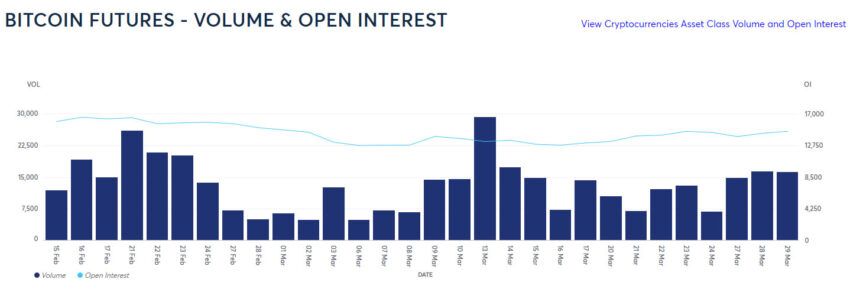Blockchain can reinvent carbon credits

In the face of increasing urgency to address climate change, the search for innovative solutions to promote sustainable growth and resilience is more critical than ever. From the realm of digital currencies, blockchain technology is emerging as a disruptive force, poised to drive a transformative shift within the green economy and catalyze climate-friendly investment and innovation across a range of sectors.
At its essence, blockchain acts as a decentralized digital ledger, meticulously recording transactions with unparalleled security and transparency across a vast network of computers. This revolutionary technology has the potential to redefine how governments, private companies, multinationals and communities adapt to and mitigate the multifaceted risks posed by climate change.
Osho Jha is the CEO and co-founder of dClimatea decentralized network for climate data.
While blockchain is a groundbreaking and invaluable tool, it represents only one element in a complex, interconnected web of solutions. Tackling climate change requires a unified, coordinated effort from governments, businesses and individuals, each harnessing the power of different innovations, robust information-sharing networks and sustainable infrastructure.
Blockchain technology holds particular promise in the fight against climate change for three main reasons: it can enhance voluntary carbon markets to channel billions of dollars toward green investments, facilitate the widespread use of parametric insurance for climate events, and accelerate the development of open data infrastructure needed to help coordinate global actors.
By unlocking the enormous potential of blockchain, we stand at the precipice of a transformative era in the global movement towards a greener economy.
A major challenge for dealing with climate change is the lack of access to reliable, high-quality data. Accurate climate information is essential for decision-makers – from decision-makers to investors – to make informed choices that promote sustainability. Blockchain technology can serve as the basis for an open data infrastructure, enabling secure and transparent sharing of climate data.
Several decentralized climate information ecosystems have emerged to leverage blockchain technology, providing reliable, transparent platforms for sharing and monetizing climate data. Using smart contracts and token incentives, data providers can be fairly rewarded for their contributions while ensuring data integrity and availability.
An open data infrastructure will give companies access to reliable climate data, help them identify new climate-friendly investment opportunities and assess risks related to climate change.
Companies and institutions can utilize this open data infrastructure for transparent and accurate assessment and disclosure of climate risks. Furthermore, as regulators and investors demand better climate-related reporting and disclosures, companies can use blockchain-based platforms to demonstrate their commitment to sustainability and responsible risk management.
By providing a secure, transparent and accessible data ecosystem, blockchain technology can help bridge the information gap that has long hindered climate action, empowering businesses to effectively navigate the challenges and opportunities of a rapidly changing world.
The Voluntary Carbon Market (VCM) has emerged as a critical mechanism for financing carbon reduction and removal projects. However, the current marketplaces have limitations, including opaque pricing and verification processes, which have hindered the growth and potential impact of the overall industry. Blockchain technology can streamline and scale the carbon credit market by increasing transparency and efficiency, making it more attractive to businesses and investors.
Blockchain-powered platforms automate the tracking and management of carbon credits, reduce the risk of double counting and ensure that credits are verifiable and unique. This increased transparency can lead to more accurate pricing and facilitate the flow of capital to projects with the greatest impact, creating more climate-friendly investment opportunities.
Blockchain technology can also make the buying and trading of carbon offsets faster and more transparent, eliminating the need for brokers and middlemen. Moreover, smart contracts can connect buyers and sellers directly, reducing transaction costs and increasing market efficiency.
Tokenized carbon credits also facilitate monitoring, reporting and verification (MRV) systems that are critical to keeping markets fair. These tokens can also be automatically updated as changes occur, ensuring their value accurately reflects the performance of the underlying carbon offset project – something that has proven challenging for the industry.
This level of transparency and automation is critical to building trust among companies and institutions in the carbon offset market as a viable tool to achieve sustainable investment goals. By leveraging blockchain technology, the voluntary carbon market can become a more efficient and reliable market, empowering companies to take meaningful action on climate change and integrate carbon offsets into their broader ESG strategies.
The increased frequency and severity of climate-related events, such as floods and hurricanes, have revealed the limitations of traditional insurance models. Parametric insurance, which relies on pre-defined triggers based on measurable parameters to provide pre-specified payouts, is non-traditional but perhaps more efficient, transparent and scalable than other forms of insurance. Blockchain technology can play a central role in the introduction and expansion of parametric insurance, to the benefit of both insurers and policyholders.
Similar to the case mentioned above, blockchain-based platforms can automate the processing and payment of parametric insurance claims using smart contracts, reducing the need for lengthy claims assessments and providing faster payouts to policyholders. By providing a transparent and secure system for managing and verifying data, blockchain technology enables the development of more accurate risk models and pricing, thereby promoting the widespread use of parametric insurance.
Decentralized oracle networks such as Chainlink play an important role in this process by providing tamper-proof data streams to smart contracts, ensuring that the agreed triggers for payouts used in parametric insurance are based on accurate and reliable information.
With access to accurate real-time data, companies can better understand their exposure to climate risk across their business, balance sheet and supply chains. This could prove crucial for companies making informed decisions about their risk management strategies and climate plans.
Parametric insurance, built on a foundation of reliable real-world data secured by a decentralized oracle network, will therefore serve as a valuable tool for building economic resilience and mitigating the negative impacts of climate-related events. As a result, companies will have better conditions for surviving and thriving in an increasingly uncertain climate landscape.
Blockchain technology has enormous potential to drive sustainable growth and innovation across various industries in the midst of an increasingly warming planet. By laying the foundation for an open data infrastructure, streamlining the voluntary carbon market and supporting the expansion of parametric assurance, blockchain can be a transformative force in the transition to a green economy.
However, it is important to recognize that blockchain is only one of many tools needed to accelerate climate action. Robust information sharing networks, green infrastructure and collaboration between stakeholders are also essential to creating lasting change.
Embracing blockchain technology, along with a host of other innovative solutions, is essential in the search for effective ways to address the pressing issue of climate change. By harnessing the power of these technologies, we can foster a more sustainable, resilient and prosperous future for all.
Companies that harness the potential of blockchain technology, as well as other cutting-edge solutions, will be at the forefront of a new era of sustainable growth.

























